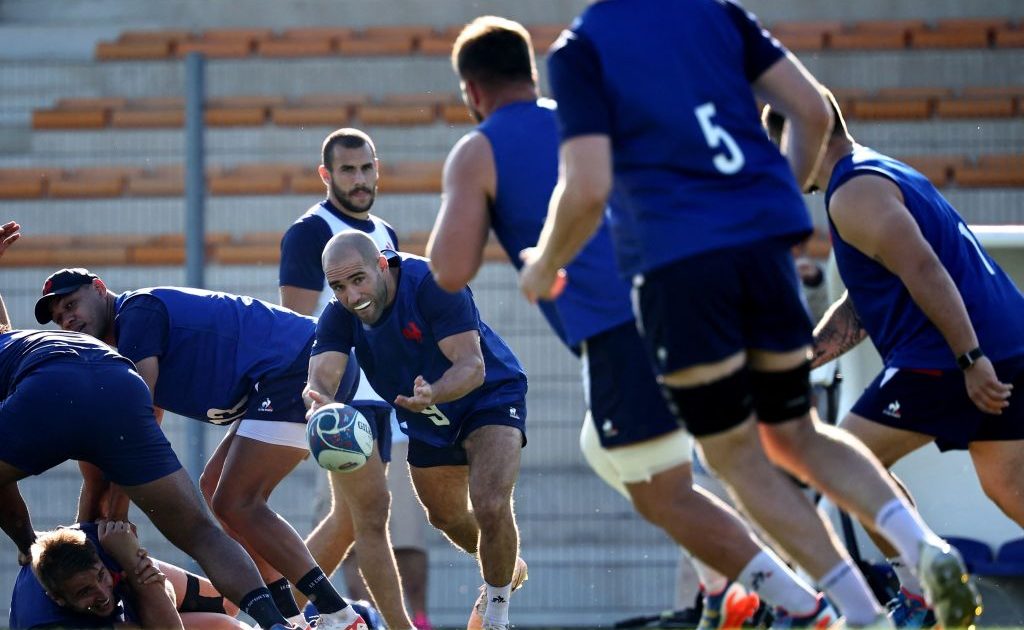Les partenaires d’entraînement des Bleus au cœur des discussions

C’est ce mercredi 13 décembre que la Fédération Française de Rugby (FFR) et la Ligue Nationale de Rugby (LNR) vont s’entretenir pour revoir la convention qui les lie. Cette convention est censée faciliter le passage des joueurs internationaux des clubs à l’équipe nationale et inversement.
Le sélectionneur de l’équipe de France, Fabien Galthié, participera à cette réunion depuis Marcoussis où il commencera à partager son analyse sur la campagne tronquée de la Coupe du Monde de Rugby 2023.
Mais c’est surtout la deuxième partie de l’ordre du jour qui est très attendue avec la volonté du nouveau staff d’obtenir les mêmes moyens dont il bénéficiait au fil des années précédentes. Parmi ces moyens, Galthié souhaite notamment la mise à disposition de 42 joueurs pour préparer les matchs des Bleus.
Le président de la LNR, René Bouscatel, a déjà indiqué que le cadre de la convention ne changerait pas jusqu’en 2027.
On ne touche pas aux 42, mais…
Si le principe des 42 joueurs ne semble pas remis en cause par une partie des dirigeants du Top 14, c’est leur répartition qui devrait faire réagir. « Être à 42 nous permet d’avoir deux équipes de 21 pour travailler à haute intensité sur deux journées, sans dégrader la qualité », a toujours dit Fabien Galthié.
« Le nombre de 42, avancé à l’époque par Fabien Galthié, est un mode de fonctionnement qui est propre à 80-90% des clubs de Top 14 », indique Ugo Mola, manager du Stade Toulousain interrogé à ce sujet par L’Equipe dans son édition du 13 décembre.
« On a tous besoin de continuer à s’entraîner à 42 parce qu’on a quand même des échéances. »
Sur les 42 mobilisés pour préparer une rencontre internationale, 23 sont assurés d’aller jusqu’au bout (les quinze titulaires et les huit remplaçants), cinq ont un espoir, même minime de jouer (ils sont réservistes et donc mobilisables en cas de souci de dernière minute).
Reste 14 joueurs qui jouent les partenaires d’entraînement, ce qu’on nomme dans le jargon les « sparring partners », qui sont généralement libérés le mercredi soir de leurs engagements avec le XV de France et remis à disposition de leur club pour jouer ou non le week-end suivant – sachant qu’ils ont manqué une partie des entraînements de leur club durant la semaine.
Que faire des 14 partenaires d’entraînement
Or c’est précisément sur ce point que les discussions pourraient s’enclencher entre la Fédé et la Ligue. « C’est vrai que les garçons qui ont vécu ce rôle de partenaires d’entrainement pendant deux, trois, quatre saisons peuvent estimer que c’est un peu lourd à gérer. Ils perdent un peu le rythme, ils ne sont ni en club, ni en équipe de France, c’est un peu pesant », indique Ugo Mola dans les colonnes de L’Equipe.
L’idée serait par exemple de faire tourner cet effectif afin que ce ne soit pas toujours les mêmes joueurs concernés qui jouent ce rôle, quitte à faire appel aux moins de 20 ans pour compléter l’effectif.
Il faudrait ainsi voir qui, comment et pour combien de temps ces partenaires d’entraînement seraient mis à disposition du XV de France. Jean-Marc Lhermet, vice-président de la FFR délégué au haut niveau, fixe un cadre d’emblée : « repartir sur un nouveau cycle, avec une nouvelle organisation, la plus simple possible. Ce qu’on veut éviter, c’est d’avoir une usine à gaz ».


